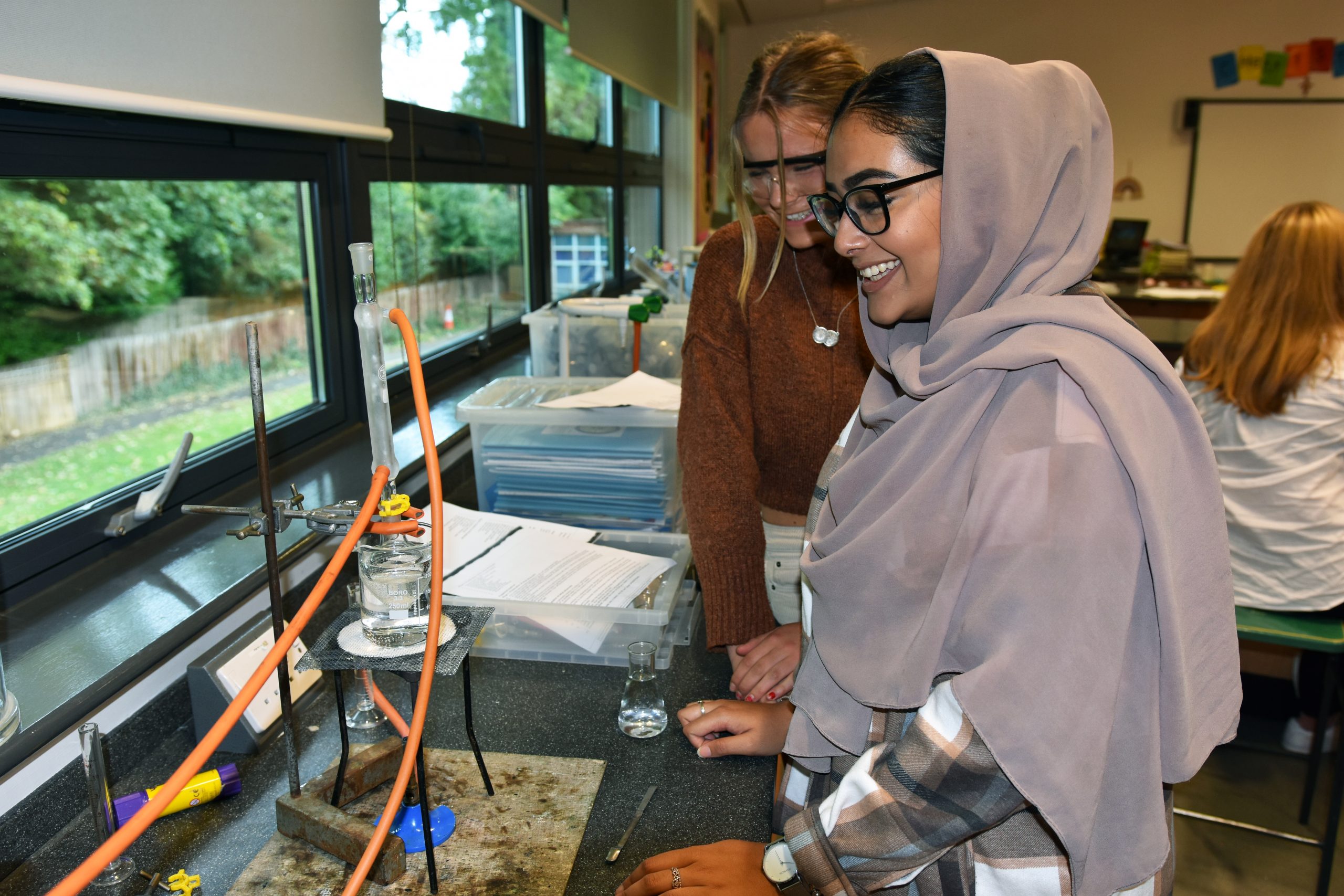Course Code:
AQA Chemistry A Level - 7405
Typical Entry Requirements:
2× 6s from GCSE higher Science papers (including Chemistry) and a 6 in GCSE Maths.
Career Possibilities:
Chemistry is a very useful ‘general’ qualification as, like all of the sciences, it develops the skills of planning, evidence gathering, analysis and critical thinking. As well as the more obvious career links such as Medicine, Dentistry, Pharmacy, Chemical Engineering, Pharmaceuticals etc., it is therefore looked favourably upon for a large number of non-science careers and higher education courses, including Law, Computing, Accountancy, Teaching and Sports Science.
The Programme:
In Year 12 chemistry students will study: Atomic Structure, Bonding, Energetics, Kinetics, Chemical Equilibria, Redox Reactions and Equations. Then students will learn more about Periodicity, Groups 2 & 7 Elements, Alkanes, Halogenoalkanes, Alkenes, Alcohols and Organic Analysis.
In Year 13 students will progress to learn more about: Thermo-Dynamics along with Rate Equations and Equilibrium Constants. Students will understand about Electrode Potentials and Electrochemical cells along with Acids and Bases, Period 3 Elements and their Oxides, Transition Metals, Reactions in Aqueous Solutions, Optical Isomerism, Aldehydes and Ketones, Carboxylic Acids, Aromatic Chemistry, Amines, Polymers, Amino Acids, Proteins and DNA, Organic Synthesis, NMR Spectroscopy and Chromatography.
During sixth form lessons, you will experience various teaching methods and styles such as demonstrations, practical work, lectures, handouts/notes, ICT work and one-to-one support. You will be expected to work much more on your own than you did at GCSE and to take a greater responsibility for your own organisation and learning.
There are five main areas that A Level students need to be prepared for organising time, coping with workload, note-taking, reading around the subject and self-motivation. At A2 there are three papers. Each paper includes a range of question styles: multiple choice, structured questions and longer answer essay questions. Practical skills are now assessed separately and do not contribute marks to the overall A Level grade but will be reported separately at the end of the full A Level course as Pass/Fail on the “Practical Endorsement”.
Why Study This Subject?:
Chemistry is an incredibly fascinating field of study. Because it is so fundamental to our world, chemistry plays a role in everyone’s lives and touches almost every aspect of our existence in some way.
Chemistry is sometimes called the “central science” because it connects other sciences to each other, such as biology, physics, geology and environmental science.
Chemistry is essential for meeting our basic needs of food, clothing, shelter, health, energy, and clean air, water, and soil. Chemical technologies enrich our quality of life in numerous ways by providing new solutions to problems in health, materials and energy usage. Thus, studying chemistry is useful in preparing us for the real world.



































